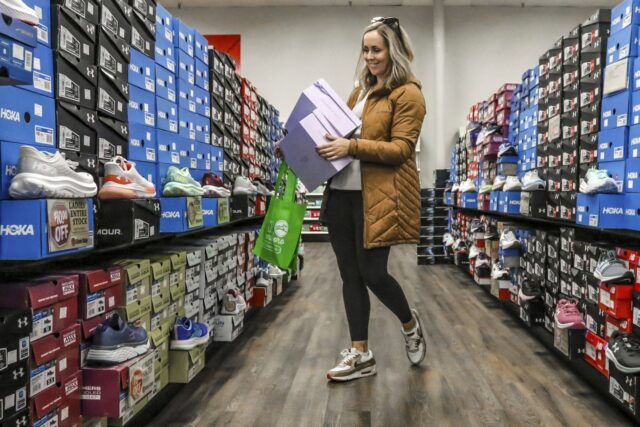Small businesses are bracing for stiff tariffs that President-elect Donald Trump has proposed as one of his first actions when he takes office
Small business owners brace for Trump’s proposed tariffsBy MAE ANDERSONAP Business WriterThe Associated Press
Small businesses are bracing for stiff tariffs that President-elect Donald Trump has proposed as one of his first actions when he takes office.
Trump has proposed importers pay a 25% tax on all products entering the country from Canada and Mexico, and an additional 10% tariff on goods from China, as one of his first executive orders. He previously floated a tariff of up to 20% on everything else the United States imports.
This means small businesses may end up paying more for goods and services. Small business owners say they’re waiting to see what final form the tariffs take, but are bracing for higher costs that they may in turn need to pass on to consumers.
Laurel Orley, cofounder and CEO of Nashville-based sprouted nut snack company Daily Crunch, said at first she didn’t think the tariffs would affect her business, because she doesn’t import very much. But she realized the tariffs will have a ripple effect. For example, she had planned on sourcing bags from China to save 5 cents a bag. But with the tariffs, she might need to scuttle that plan.
“That was one of our big initiatives for 2025, moving all our bags to China for 15 cents a bag,” she said. “And now I don’t know if we can save any money on the bags when the tariffs go into effect.”
Warehouse prices are going up because of the expected tariffs, too, Orley said. Her warehouse provider said demand has been increasing since the tariffs were announced.
“As many other companies are buying bulk inventory overseas to get ahead of tariffs, warehouse availability is becoming limited, which will increase costs for everyone,” she said.
So, Orley is trying to lock in her warehouse contract for 2025 and find a third-party logistics provider for the year, “to get ahead of what’s to come and pre-planning as much as we can,” she said.
Across the border in Canada, Julie Bednarski-Malik runs another snack company, Healthy Crunch, based in Mississauga, Ontario, that specializes in foods that are free of the top 11 major food allergens like peanut, tree nut and dairy as well as low in sugar.
She sells her products in both Canadian and U.S. retail stores, and said tariffs will affect consumers on both sides.
“If you have a severe anaphylactic reaction to some type of dairy or soy and you can’t find a product in the U.S. because we’re the only ones that make it, it’s going to be a lot more expensive for U.S. consumers,” Bednarski-Malik said. ”So I think these tariffs are really not only going to be penalizing, you know, other countries such as Canada, but also U.S. consumers.”
She’s holding off on making any major changes in her business until the tariffs are finalized, but expects to see higher prices.
“Ultimately, the consumer is going to have to pay at the end of the day because our margins are so tight beginning with our food prices, (which) have been increasing dramatically over the last few years,” she said. “So there’s not much margin left to keep the same price and maintain that price while incurring a 25% extra tariff on our product.”

COMMENTS
Please let us know if you're having issues with commenting.